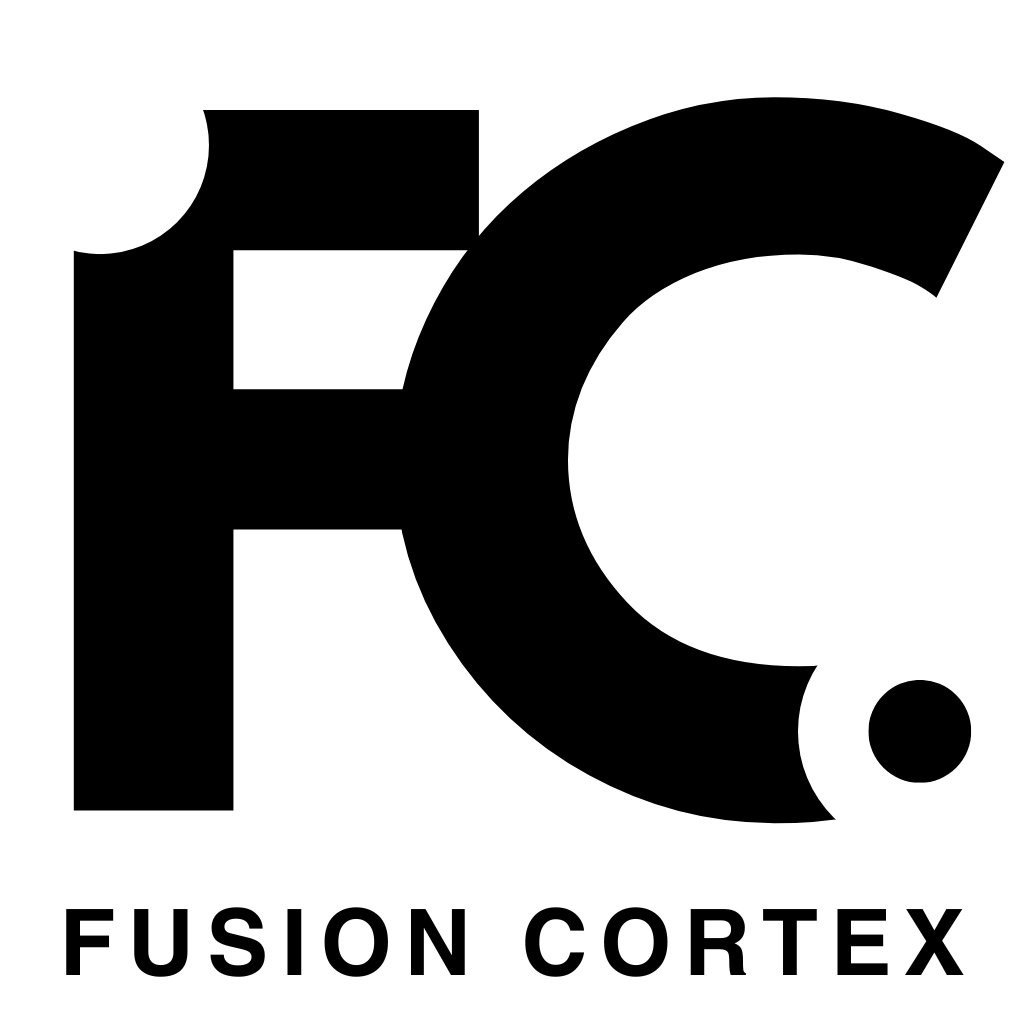In today’s digital world, cloud computing has transformed how small businesses operate, providing powerful tools without costly infrastructure. Whether you want to streamline operations, improve collaboration, or scale your business efficiently, cloud services offer flexible, affordable solutions. As remote work grows and businesses demand agility, selecting the right cloud computing service is crucial for success. This guide helps small businesses choose the best cloud computing services to meet their unique needs and goals. Let’s dive into how cloud solutions can accelerate your business growth!
Introduction to Cloud Computing for Small Businesses
Cloud computing has transformed business operations, providing small businesses with access to advanced technology without high infrastructure costs. For small companies with tight budgets and limited resources, cloud computing offers scalable, flexible, and cost-effective solutions to drive growth and improve efficiency.
Cloud computing lets businesses access data and applications online, removing the need for physical hardware, boosting innovation and productivity.
The biggest benefit of cloud computing is cost savings. Small businesses no longer need to invest in expensive hardware or maintain an in-house IT team. Cloud services allow businesses to choose solutions based on their needs, scaling up or down as necessary, providing unmatched flexibility compared to traditional systems.
Cloud computing offers small businesses access to advanced tools, eliminating the need for costly upgrades or large investments.
Ultimately, cloud computing empowers small businesses to focus on their core operations, eliminating the complexities of managing IT infrastructure. By democratizing technology, the cloud enables businesses of all sizes to innovate, grow, and thrive.
Key Benefits of Cloud Computing for Small Businesses

Cloud computing offers several advantages that help small businesses improve operations, reduce costs, and remain flexible. Below are some key benefits:
- Cost Savings
Cloud computing reduces the need for expensive hardware and software, with businesses paying only for what they use. This eliminates high upfront costs and ongoing maintenance. Cloud service providers also manage updates, security, and upgrades, further reducing expenses. - Improved Collaboration
Cloud tools enable seamless collaboration, regardless of location. Employees can work on documents in real-time. That ensure everyone is on the same page and boosting productivity for remote teams. - Scalability and Flexibility
Easily scale services based on demand without heavy hardware investments, helping businesses stay agile. - Advanced Security Features
Cloud providers ensure data protection with encryption, backups, and multi-factor authentication. - Disaster Recovery and Business Continuity
Automatic backups and recovery minimize downtime and protect business continuity during disruptions. - Automatic Software Updates
Cloud software stays current with automatic updates, reducing maintenance and improving security. - Increased Mobility
Access data from any device, enabling flexible work and better productivity. - Environmental Sustainability
Cloud solutions use energy-efficient data centers, reducing environmental impact for small businesses.
Types of Cloud Computing Services for Small Businesses
Cloud computing offers flexible solutions for small businesses to cut costs, boost efficiency, and access advanced tools. Common options include IaaS, PaaS, and SaaS—each serving different needs without complex IT management.
1. Infrastructure as a Service (IaaS)
IaaS provides businesses with virtualized computing resources over the internet. IaaS lets small businesses rent servers and storage, scaling easily without managing physical hardware or infrastructure.
For small businesses, IaaS is ideal for:
- Hosting websites or applications: Businesses can deploy and host their websites or apps on virtual servers without the need for on-site hardware.
- Storing data: Cloud storage options make it easy to store and access large amounts of data securely.
- Running virtual machines: Small businesses can run virtual machines (VMs) with various operating systems for testing or development purposes.
Top IaaS providers like AWS, Azure, and GCP offer scalable, cost-effective cloud solutions for small businesses.
2. Platform as a Service (PaaS)
PaaS lets businesses build, run, and manage apps without handling hardware or software setup. This service is designed to streamline the development process by offering tools and frameworks that simplify application creation and deployment.
For small businesses, PaaS is particularly useful for:
- Application development: Small businesses can develop, test, and deploy applications with ease using built-in tools and frameworks.
- Managing databases: PaaS providers offer database management tools, allowing businesses to manage their data without worrying about database infrastructure.
- Scaling applications: PaaS makes it easier for businesses to scale their applications automatically to meet demand, ensuring high performance without manual intervention.
Top PaaS providers like Heroku, Google App Engine, and Azure simplify app development and deployment for businesses.
3. Software as a Service (SaaS)
SaaS provides online software access without installation, offering affordable, subscription-based tools with no upfront costs or maintenance.
SaaS is especially advantageous for small businesses because it offers:
- Cost-Effective: Pay only for the software you use, often per user, helping control costs.
- Easy Access: Access cloud-based SaaS applications from anywhere, whether in-office or remote.
- Automatic Updates: SaaS providers handle updates, ensuring businesses always have the latest features and security.
Some common SaaS offerings for small businesses include:
- Google Workspace (formerly G Suite): Cloud-based email, productivity tools, and collaboration features.
- Salesforce: A customer relationship management (CRM) platform that helps small businesses manage customer data, sales, and marketing.
- QuickBooks Online: A cloud-based accounting software solution that simplifies financial management and bookkeeping.
SaaS provides an ideal solution for businesses that want powerful software without the complexity of installation, maintenance, or updates.
4. Function as a Service (FaaS) / Serverless Computing
FaaS (serverless computing) runs code only when triggered, letting businesses avoid server management and pay per execution.
For small businesses, FaaS is ideal for:
- Event-Driven Applications: FaaS runs tasks in response to triggers like form submissions or payments.
- Automatic Scaling: FaaS scales resources based on demand, offering a cost-effective solution for varying workloads.
- Minimal Server Management: Cloud providers handle infrastructure, so businesses avoid server maintenance and scaling concerns.
Major FaaS providers include AWS Lambda, Google Cloud Functions, and Azure Functions.
5. Storage as a Service (STaaS)
Storage as a Service allows businesses to store data remotely in a cloud environment, reducing the need for on-premise storage solutions like hard drives and physical servers. Small businesses can access their data from any location with an internet connection and benefit from secure, reliable storage options.
For small businesses, STaaS is beneficial for:
- Backing up data: Cloud storage ensures that important business data is regularly backed up, providing peace of mind in case of data loss.
- Storing large volumes of data: Businesses can store and access large amounts of data without worrying about running out of space on local systems.
- File sharing and collaboration: Cloud storage solutions enable easy sharing and collaboration on files between team members, clients, and partners.
Leading STaaS providers include Dropbox, Google Drive, and Microsoft OneDrive, all offering scalable and secure cloud storage solutions.
Top Cloud Computing Services for Small Businesses in 2025

In 2025, small businesses use diverse cloud services to cut costs, boost productivity, and stay competitive. Here are top options.
1. Amazon Web Services (AWS)
Amazon Web Services (AWS) remains one of the most powerful and comprehensive cloud platforms, offering a wide range of services suitable for small businesses of all industries. AWS provides Infrastructure as a Service (IaaS), Platform as a Service (PaaS), and Software as a Service (SaaS) offerings, making it an all-in-one solution for businesses looking to scale efficiently.
Key Features for Small Businesses:
- Scalable Infrastructure: AWS allows businesses to easily scale their infrastructure up or down based on demand, making it ideal for businesses with fluctuating workloads.
- Cost-Effective Pricing: Pay-as-you-go pricing helps businesses avoid unnecessary costs and only pay for the services they use.
- Comprehensive Tools: AWS offers tools for storage, analytics, machine learning, security, and more, enabling small businesses to access enterprise-grade technology.
AWS continues to be a popular choice for businesses seeking a robust and highly customizable cloud solution with global reach.
2. Microsoft Azure
Microsoft Azure is a leading cloud computing platform offering a wide range of services that are particularly beneficial for businesses already using Microsoft products, such as Windows Server, Office 365, and Teams. In 2025, Azure is recognized for its hybrid capabilities, enabling businesses to seamlessly integrate their on-premise infrastructure with the cloud.
Key Features for Small Businesses:
- Hybrid Cloud Solutions: Azure’s hybrid approach allows businesses to maintain part of their infrastructure on-premises while running other parts in the cloud, offering flexibility and security.
- Advanced Security: Azure provides built-in security features, such as encryption, identity management, and compliance with international standards, making it a great choice for businesses prioritizing data protection.
- AI and Machine Learning: With Azure AI and machine learning tools, small businesses can integrate intelligent features into their applications, improving decision-making and customer experiences.
Azure’s extensive integration with Microsoft products, along with its focus on security and flexibility, makes it an attractive option for small businesses looking for a reliable, scalable cloud platform.
3. Google Cloud Platform (GCP)
Google Cloud Platform (GCP) offers an innovative and cost-effective cloud solution for small businesses, particularly those that require high-performance computing and large-scale data analysis. GCP has a strong reputation for its powerful data analytics and machine learning tools, as well as its global infrastructure.
Key Features for Small Businesses:
- Big Data and Analytics: GCP offers tools such as BigQuery and Cloud Dataflow, which help small businesses process and analyze large datasets with ease.
- AI and Machine Learning: Google’s AI-powered tools, including TensorFlow and AutoML, allow businesses to integrate advanced machine learning models into their workflows without requiring deep technical expertise.
- Competitive Pricing: Google Cloud offers pay-per-use pricing and discounts for sustained use, which can help small businesses keep cloud costs manageable.
GCP is particularly beneficial for businesses focused on data-intensive operations or those looking to implement AI and machine learning technologies without significant upfront investment.
4. Dropbox Business
Dropbox Business remains a top choice for small businesses looking for an easy-to-use and secure cloud storage and file-sharing platform. Known for its simplicity and collaboration features, Dropbox Business is ideal for teams that need to share files, work on documents together, and securely store their data in the cloud.
Key Features for Small Businesses:
- File Storage and Sharing: Dropbox allows businesses to store, sync, and share files seamlessly, making it easy for teams to collaborate from any location.
- Version Control and Collaboration: Real-time collaboration tools, file versioning, and advanced permissions make it easy to work on documents and track changes.
- Security and Compliance: Dropbox provides enterprise-grade encryption and compliance with industry standards, such as GDPR and HIPAA.
Dropbox Business is a perfect cloud service for small businesses focused on collaboration, file sharing, and easy access to documents.
5. Salesforce
Salesforce is a cloud-based customer relationship management (CRM) solution that continues to be the industry leader for small businesses looking to manage customer data, track sales, and improve customer engagement. In 2025, Salesforce continues to evolve, integrating more AI-driven insights and automation features into its platform.
Key Features for Small Businesses:
- Comprehensive CRM: Salesforce’s CRM tools help businesses manage leads, track customer interactions, and close deals faster.
- AI and Analytics: Salesforce’s Einstein AI features offer predictive analytics, personalized customer experiences, and automation to help businesses make data-driven decisions.
- Customization: Salesforce is highly customizable, allowing small businesses to tailor the platform to their specific needs and integrate with other business systems.
Salesforce remains one of the top choices for small businesses that want to streamline their sales and customer relationship processes while leveraging advanced AI tools for greater insights.
6. QuickBooks Online
QuickBooks Online is a cloud-based accounting software that has become a staple for small businesses. In 2025, QuickBooks continues to offer robust financial management tools that simplify everything from invoicing to expense tracking and tax reporting.
Key Features for Small Businesses:
- Automated Accounting: QuickBooks automates key financial tasks, such as invoicing, expense tracking, and bank reconciliations, making it easier for small business owners to manage their finances.
- Tax and Compliance: QuickBooks helps businesses stay compliant with tax laws by automatically calculating taxes and generating tax-ready reports.
- Integration with Other Tools: QuickBooks integrates with other business tools, such as PayPal, Shopify, and Square, to provide a comprehensive view of financials.
QuickBooks Online is the ideal solution for small businesses looking for an affordable and easy-to-use accounting platform to manage finances efficiently.
How to Choose the Right Cloud Computing Service for Your Small Business
Choosing the right cloud service for your small business requires careful consideration of your needs, budget, and future growth. Here’s a streamlined guide to help:
- Assess Your Business Needs
Identify your core business functions, scalability needs, technical expertise, and budget. Consider whether you need storage, collaboration tools, or customer management systems, and how your needs may evolve. - Determine the Type of Cloud Service
Choose from three main options:- IaaS (Infrastructure): For businesses needing customizable infrastructure.
- PaaS (Platform): For application development without managing underlying infrastructure.
- SaaS (Software): Ready-to-use software solutions for tasks like email, CRM, or accounting.
- Evaluate Security and Compliance
Ensure the provider offers robust security features like encryption, backup, and disaster recovery. Verify compliance with regulations (e.g., GDPR, HIPAA) if your business handles sensitive data. - Consider Scalability and Flexibility
Choose a service that allows you to easily scale storage or resources. Look for pay-as-you-go models, automatic scaling, and flexible pricing structures to adjust as your business grows. - Assess Ease of Use and Integration
Opt for a user-friendly interface and seamless integration with your existing tools (e.g., CRM, accounting). Good customer support is essential for resolving issues quickly. - Compare Pricing Models
Understand the pricing structure, whether it’s pay-as-you-go, subscription-based, or freemium, to ensure it fits your budget and usage patterns. - Look for Reliability and Performance
Choose a provider with high uptime guarantees (99.9% or higher) and solid performance metrics, especially for real-time applications. - Test and Trial the Service
Take advantage of free trials or demos to evaluate the service’s features, performance, and suitability for your business before committing.
Conclusion
Cloud computing is essential for small businesses aiming to stay competitive, optimize operations, and scale effectively. It offers affordable SaaS, IaaS, and PaaS solutions, giving businesses advanced tools while focusing on core tasks. Visit Fusion Cortex for the best cloud computing services.
Choosing the right cloud service requires understanding your business needs, budget, and growth plans. Key factors to consider include security, scalability, ease of use, and pricing. Testing different platforms and seeking expert advice can improve decision-making and minimize risks.
By adopting cloud services, small businesses can boost agility, enhance efficiency, and unlock new opportunities, positioning themselves for success in the digital era.






0 Comments